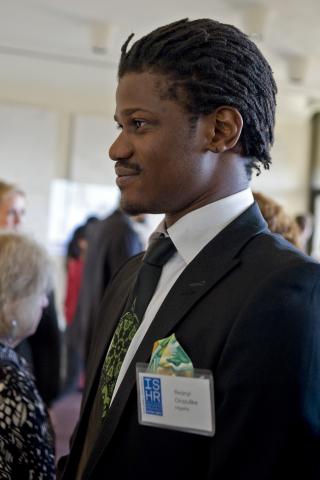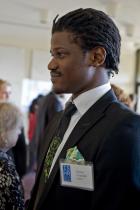Ifeanyi Orazulike

Nigeria, 2011
Executive Director, International Centre for Advocacy on Rights to Health
After losing a corporate job when his boss learned of his sexuality, Ifeanyi Orazulike focused his career on the LGTBI movement in Nigeria. He says Gani Fawehinmi, a Nigerian human rights activist, was his inspiration. “I took his quote and hung it on my wall,” Orazulike explains. “I wanted to do like he did and stand up for what I believe and for other people who feel the same thing I feel.” After only two months of joining the staff of the International Center for Advocacy on Rights (ICARH), he became the Executive Director due to the death of his predecessor. He says, “For me, this is the best job there is. I don’t get paid much, but I am happy. My pursuit of human rights has been a great challenge, but it has given me the strength to get where I am today as well as to encourage others.” As he explains, ICARH’s growth and development have fostered other LGTBI organizations in Nigeria as well as community centers for men who have sex with men (MSM) and sexual minorities. “Before [my organization], people could not talk about their sexuality and come out,” he explains. “I couldn’t accept this, and I don’t take ‘no’ for an answer.” Orazulike now runs the first and only MSM clinic in Nigeria. As he affirms proudly, “I want to achieve results. I want to expand the work I’m doing, especially the clinic so that people can have more health access.” He plans to use human rights documentation and litigation cases to provide sexual minorities with more access to services since Nigeria considers homosexuality illegal. Although he was originally driven to the LGBTI movement in Nigeria by his own personal experience, he says that now, “the impact and lives I’ve touched through my work have ignited a passion in me. What I have succeeded to do for others in my own struggles motivates me to go further. By being focused, I have overcome many challenges. If I stay focused, I can overcome any challenge.”






